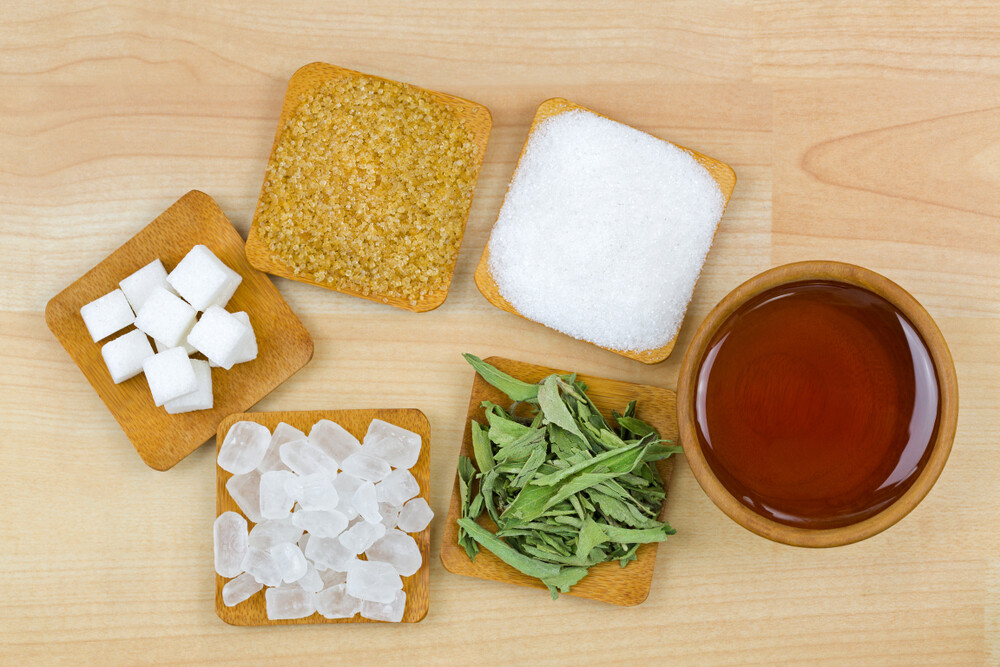We all know that sugar is not healthy. But what about the numerous alternative sweeteners that have been conquering the market for years?
What sugar does
More than a third of the world’s population is overweight or obese, a tenth suffers from diabetes – and the trend is rising. According to WHO estimates from 2015, almost every second German woman will suffer from overweight in 2030, while the proportion of men will be just under two thirds. These are alarming figures, which are partly due to the increasing consumption of sugary food.
Foods that are deliberately optimized to override our reward mechanisms in the brain. In concrete terms this means that we cannot stop after one or two pieces of chocolate, we want the whole bar. Sugar thus causes addiction-typical behaviour in us, which also means that we suffer from withdrawal symptoms if we give up.
We are mainly talking about industrially produced sugar, but what about the healthy and natural alternatives of sugar? Are sweeteners like stevia, honey, agave syrup and the like really better?
Are natural sugar alternatives really healthy?
Natural sugar alternatives such as honey, beet syrup, coconut sugar, brown sugar or maple syrup are only partially better than sugar. This is because all natural varieties derive their sweetness from normal types of sugar. Sucrose, whose components are glucose and fructose, is also used to make crystal sugar in the supermarket. Given the excess of sugar molecules, the positive ingredients such as vitamins, enzymes and trace elements are pushed back.
Even worse than honey etc. is only agave syrup, because it contains mainly fructose and less glucose than the other natural sugar alternatives. The problem is that fructose is associated with metabolic diseases such as fatty liver or general obesity.
What can stevia, xylitol etc. do?
From Stevia and the synthetically produced sweeteners aspartame, saccharin and cyclamate, we need very little compared to sugar to bring sweetness into our food. Only xylitol and sorbitol have a similar sweetening power as normal sugar. All these sweeteners have the advantage that they do not cause tooth decay.
According to results from animal studies, sweeteners are said to alter insulin levels and the bacterial flora in the intestines. This should increase the risk of diabetes and increase the desire to eat. Whether the results from rat tests can actually be transferred to humans, research will have to show in the coming years.
In case of doubt: No matter whether sugar, vegetable or synthetically produced sweeteners, only eat well-dosed amounts of them. Your body will thank you for it.

